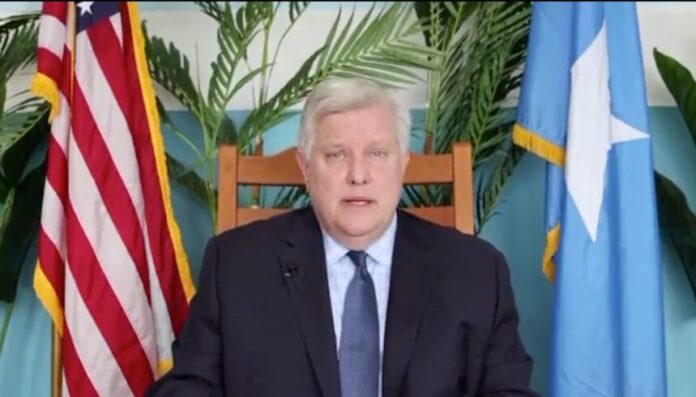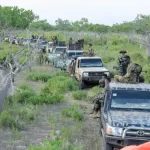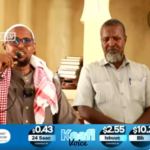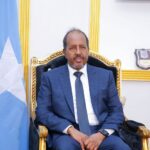MOGADISHU, Somalia — The United States has pledged an additional $28 million to support emergency and long-term resilience efforts in Somalia, marking a significant step in enhancing food security and economic stability in the region.
This financial boost was announced by U.S. Ambassador Riley during a press conference in Mogadishu.
The funds will support the launch of two comprehensive five-year projects designed to address both immediate and ongoing challenges faced by Somali communities. The first project aims to build sustainable livelihoods by providing training and resources for agriculture, livestock management, and small business development.
This initiative is expected to directly benefit over 80,000 households, translating to approximately 500,000 individuals, by fostering skills that lead to self-sufficiency.
The second project focuses on financial empowerment, helping Somalis to increase their savings and assets through access to microfinance, savings groups, and financial literacy programs. This aspect of the aid package is intended to create a buffer against future economic shocks, reducing dependency on emergency aid.
Ambassador Riley emphasized the urgency of these projects, given Somalia’s history of droughts, conflict, and resultant food insecurity. “By investing in resilience now, we’re not just responding to crises; we’re preventing them,” Riley stated. The initiative aligns with broader U.S. efforts in the Horn of Africa to shift from emergency relief to development, aiming at long-term stability.
Local officials and community leaders have welcomed the announcement, seeing it as a crucial step towards recovery and stability. “This support will transform lives, offering hope where there was desperation,” said Mohamed Ali, a local chief in one of the targeted regions.
The projects will be rolled out in collaboration with local governments, international NGOs, and community organizations to ensure they are tailored to the specific needs of various Somali regions. The U.S. Agency for International Development (USAID) will oversee the implementation, with periodic assessments to adapt strategies based on the evolving situation on the ground.
Critics, however, caution that while the commitment is commendable, the success of such programs heavily depends on security, governance, and the transparency of aid distribution. Past aid efforts in Somalia have faced challenges from corruption and logistical issues, which could impact the effectiveness of these new initiatives.
As Somalia continues to grapple with the effects of climate change, internal conflict, and economic fragility, this U.S. investment in resilience is seen by many as a beacon of hope, potentially paving the way for a more stable and self-reliant Somalia in the coming years.







